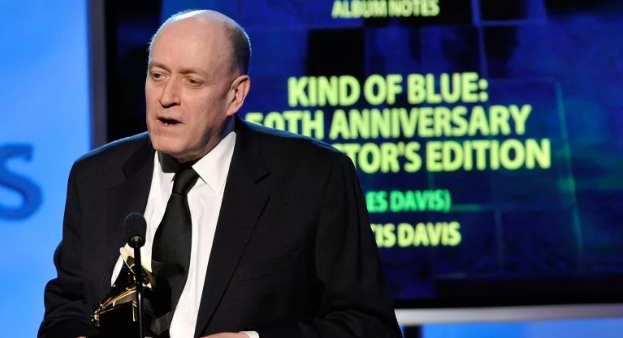Francis Davis, Distinguished Jazz Critic and Cultural Commentator, Dies at 78
PHILADELPHIA — Francis Davis, a sharp, eloquent, and deeply perceptive cultural critic whose voice shaped the landscape of jazz journalism for over four decades, passed away on Monday at his home in Philadelphia. He was 78. His death, after a prolonged battle with emphysema and Parkinson’s disease, was confirmed by his wife, Terry Gross, the host and co-executive producer of Fresh Air on NPR.
Davis was more than just a jazz critic—he was a literary craftsman and intellectual force whose work examined music not only as an art form but as a prism for viewing social change, identity, and the passage of time. Through his columns, essays, liner notes, and books, Davis navigated the complex intersections of sound, culture, and history with piercing intelligence and a signature wit.
From Philadelphia to National Influence
Born on August 30, 1946, in Philadelphia, Francis John Davis was raised by his mother, Dorothy McCartney, a medical clerk, and his grandmother, after the loss of his uncle in World War II—a man for whom he was named. His early years were marked by a voracious appetite for reading, cultivated during his teenage job at the Free Library of Philadelphia. There, a serendipitous encounter with Norman Mailer’s Advertisements for Myself left an indelible impression. It was, Davis would later say, the first time he saw writing as something visceral and potent—a revelation that fueled his eventual pursuit of journalism.
Davis attended Temple University from 1964 to 1969, a period that overlapped with a seismic moment in jazz: John Coltrane’s groundbreaking 1966 performance at Temple, later released as Offering: Live at Temple University. Davis, who witnessed the concert firsthand, reflected on it years later with insight into both the music and its alienating, if profound, impact on even the most devoted jazz fans.
Voice of a Generation in Jazz Criticism
Francis Davis became a towering figure in jazz criticism during his tenure at The Village Voice, where he succeeded the influential Gary Giddins in 2004. In that role, Davis continued to expand the scope and intellectual weight of jazz commentary. In 2006, he initiated the Jazz Critics Poll, a comprehensive, year-end survey that quickly became a bellwether for the genre. Initially run at the Voice, the poll moved to NPR Music in 2013, where Davis curated it until 2020. It now lives on at ArtsFuse, its prestige firmly intact.
His contributions to The Atlantic were equally defining. As a longtime contributing editor, Davis profiled artists as varied as John Zorn and Benny Carter with the same perceptiveness and contextual clarity. “Francis’s frame of vision was so broad,” said Atlantic staff writer David A. Graham. “He saw through fads easily… while conveying what made the best jazz so great, even to casual readers.”
His liner notes for the 50th anniversary edition of Kind of Blue are emblematic of his ability to blend technical insight with broad appeal. “Most listeners probably wouldn’t know a mode from a Mercedes Benz,” he wrote, yet he still captured the timeless, elusive power of Miles Davis’s landmark recording. That commentary earned him a Grammy Award, one of many honors in a career that also included a Guggenheim Fellowship (1993), a Pew Fellowship (1994), and multiple ASCAP Deems Taylor Awards.
Literary Legacy and Philosophical Depth
Davis published several essay collections that combined musical analysis with cultural commentary. Outcats: Jazz Composers, Instrumentalists, and Singers and Jazz and Its Discontents: A Francis Davis Reader are regarded as seminal texts in jazz writing. Reviewing Outcats, Washington Post critic Jonathan Yardley described Davis as “a sympathetic observer of the complexities of the artistic life,” praising his ability to remain “a pleasure to read,” even in his melancholic musings.
His 2001 collection Like Young: Jazz, Pop, Youth and Middle Age earned him special recognition for its exploration of generational shifts in taste, sensibility, and artistic ambition. Davis often probed the tension between innovation and nostalgia, pushing back against both shallow commercial trends and romanticized views of the past.
One of his most enduring strengths was his ability to weave broader cultural themes into his musical critiques—whether dissecting the sanctimony of ‘70s jazz fusion or the commercial motivations behind retro-leaning “Young Lions” in the 1980s and ’90s. His style was erudite but accessible, wry yet earnest—a balance few critics ever master.
Personal Life and Final Years
Davis’s personal and professional life were deeply intertwined with the public radio world. His marriage to Terry Gross—host of NPR’s Fresh Air, where Davis occasionally appeared—was a quiet partnership of shared curiosity and creative drive.
In his later years, Davis contended with serious health issues but remained intellectually active. He continued to edit and write, overseeing his annual jazz poll and mentoring younger critics. Even as his physical voice weakened, his critical voice remained a clarion call in the jazz world.
A Lasting Influence
Francis Davis leaves behind not just a body of written work, but a critical framework for understanding jazz as more than music. To him, jazz was an evolving, living language—rooted in struggle and triumph, tradition and rebellion. His commitment to nuance, clarity, and cultural context set a standard that aspiring critics will long strive to meet.
His death marks the end of a chapter in American music journalism, but his influence endures in every thoughtful piece of jazz criticism that dares to look deeper, to listen harder, and to connect sound with society.
